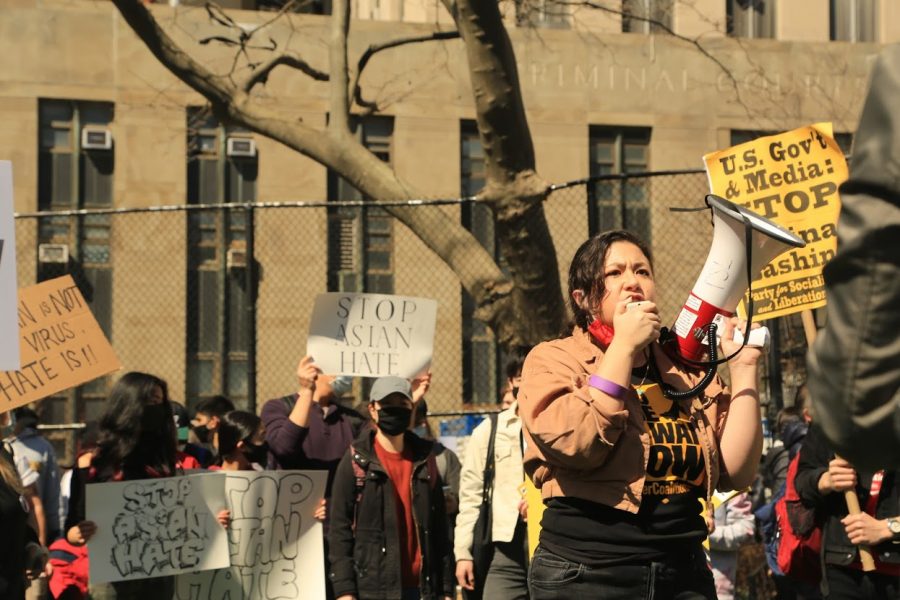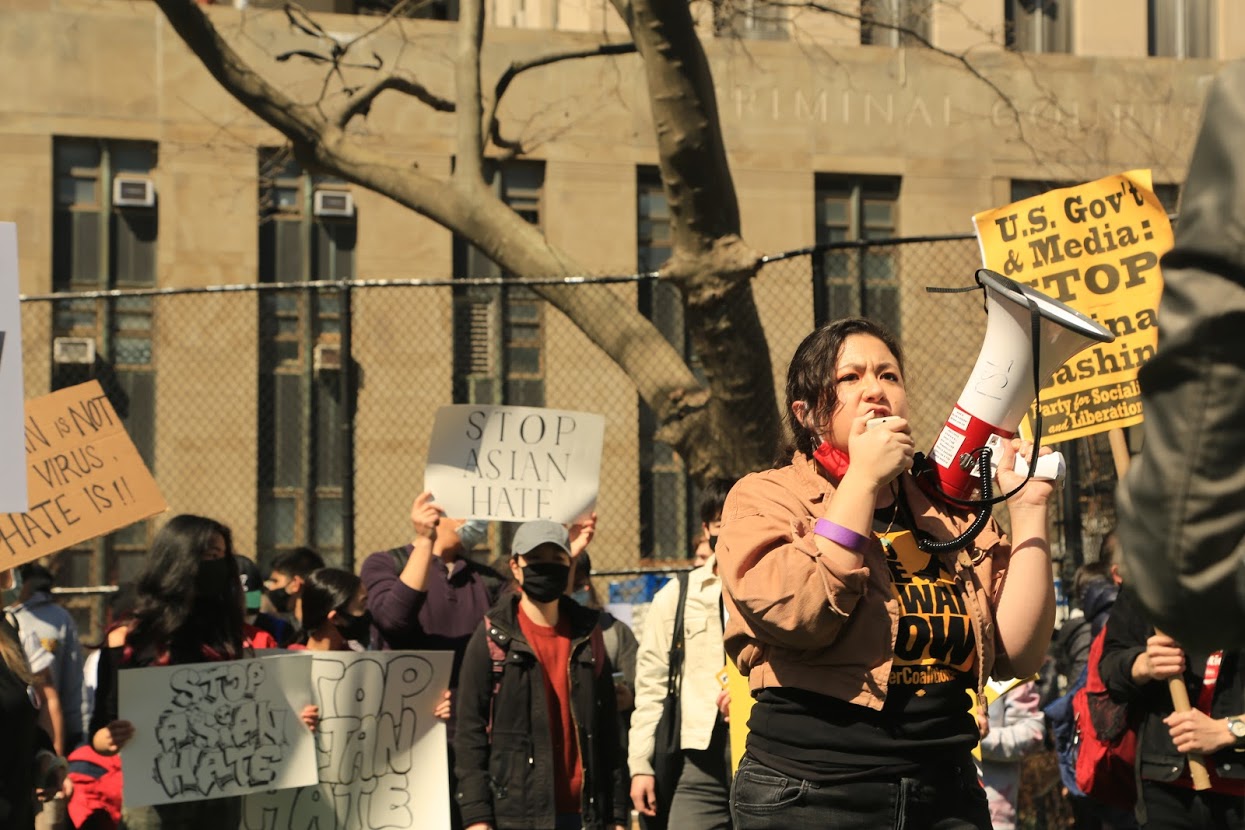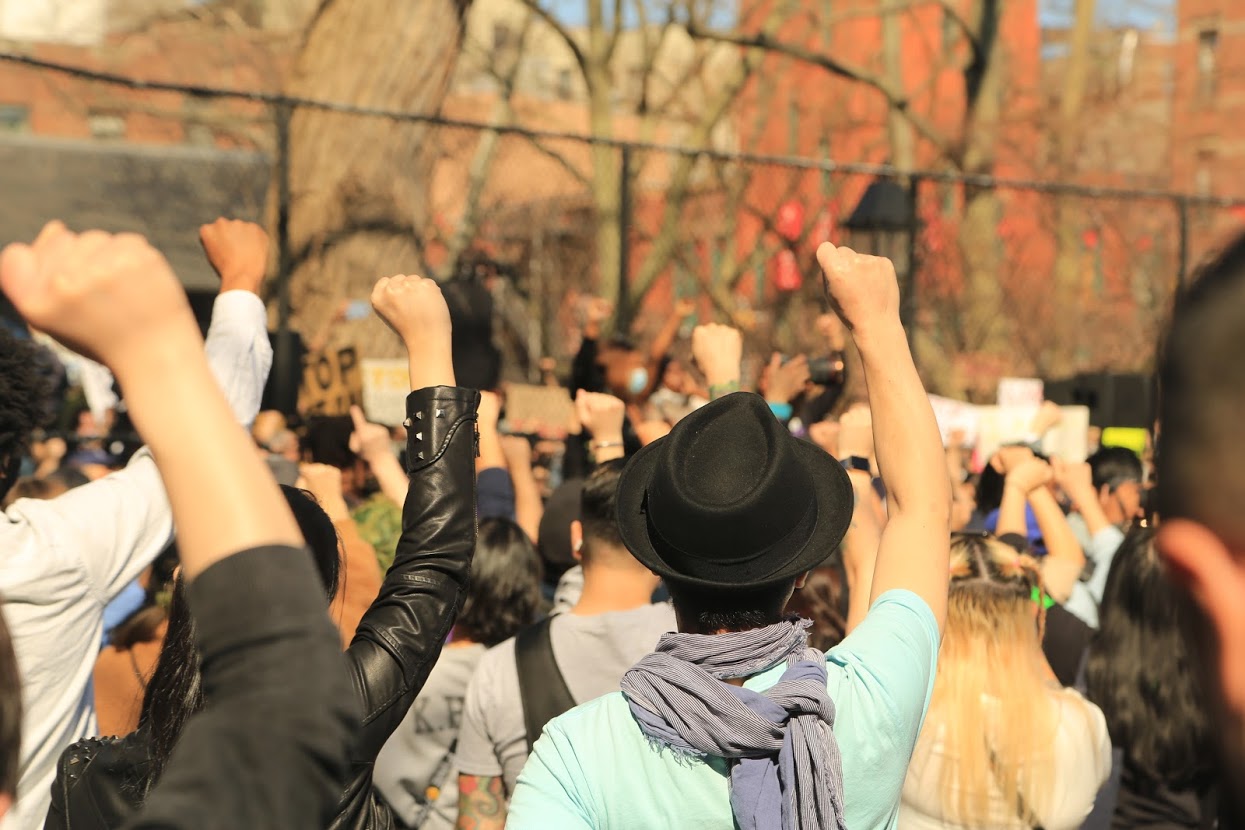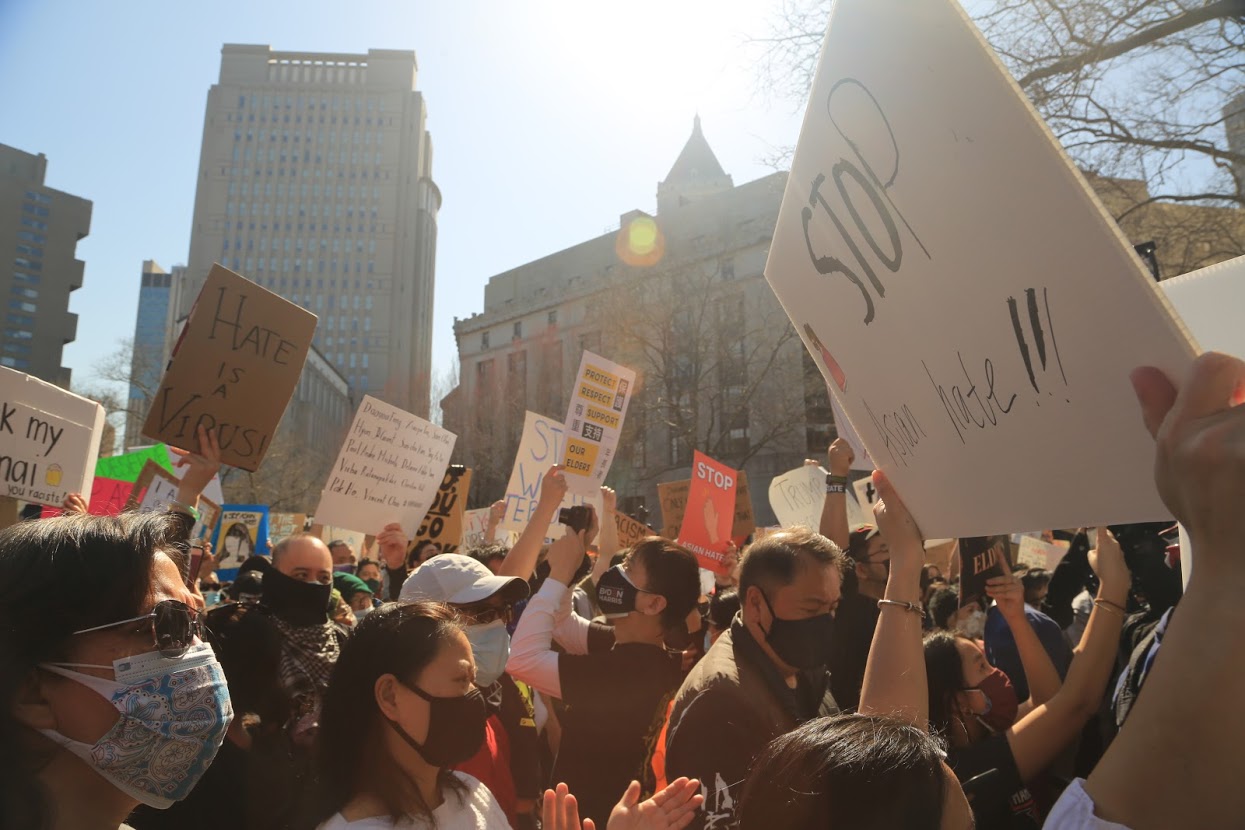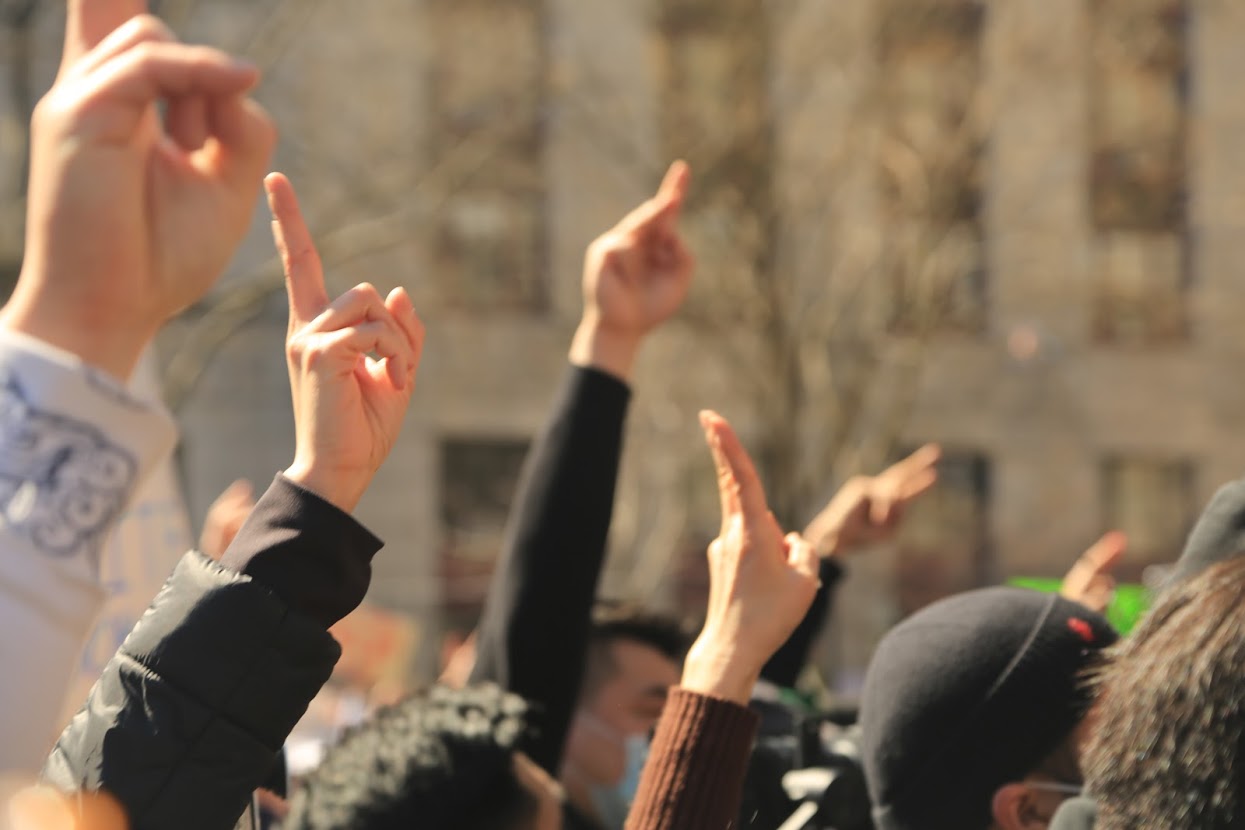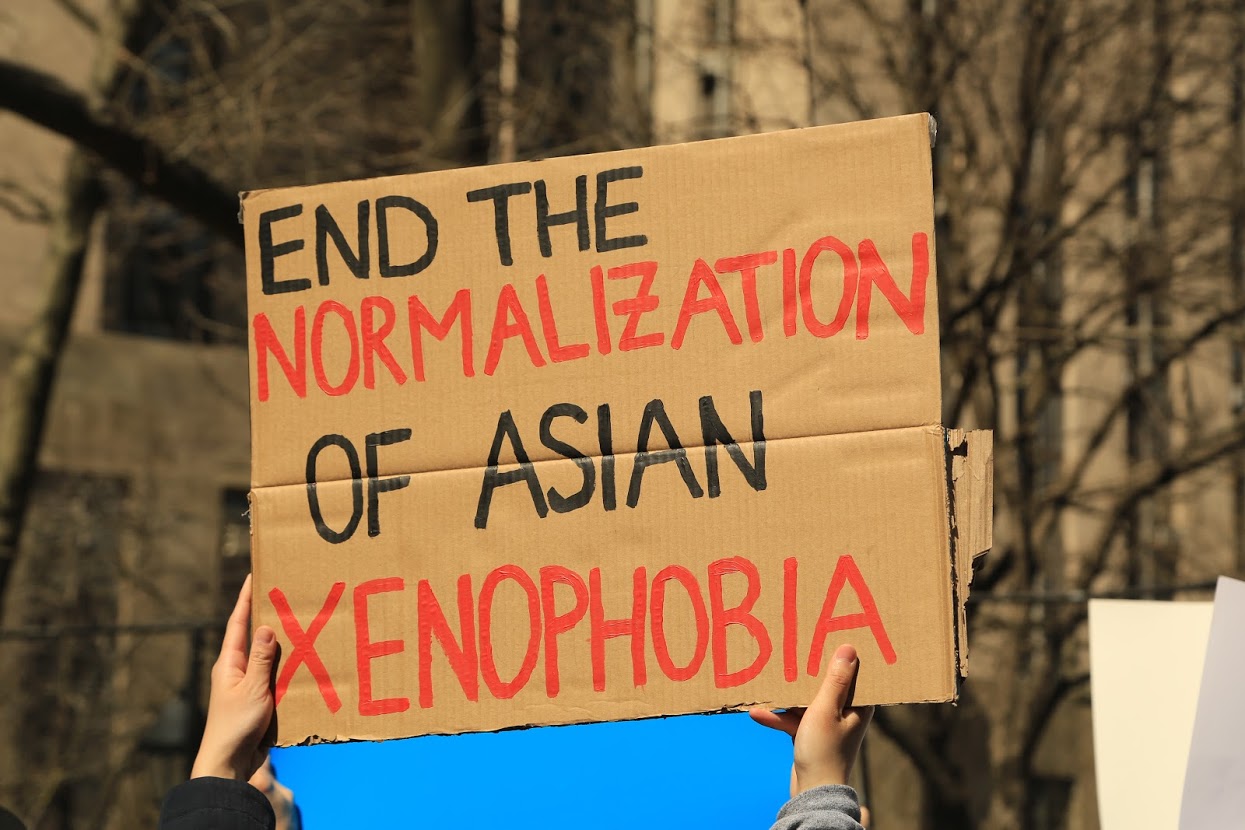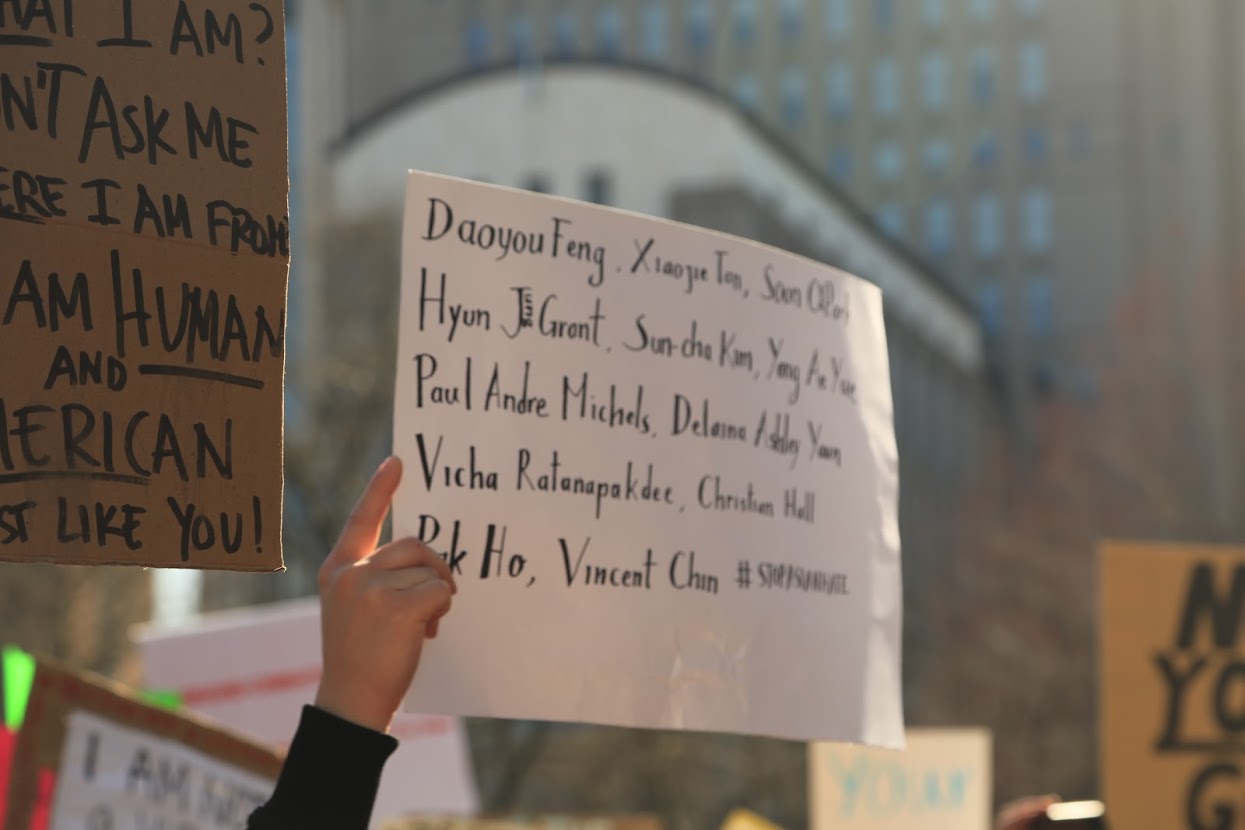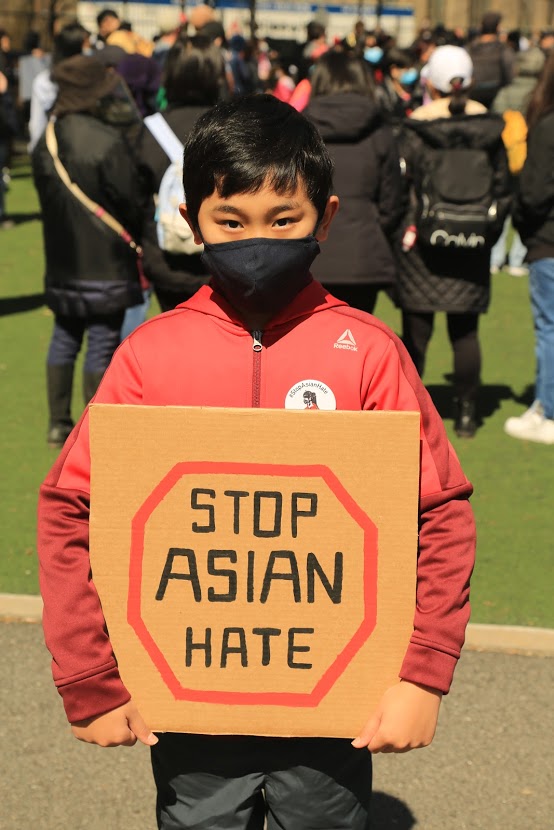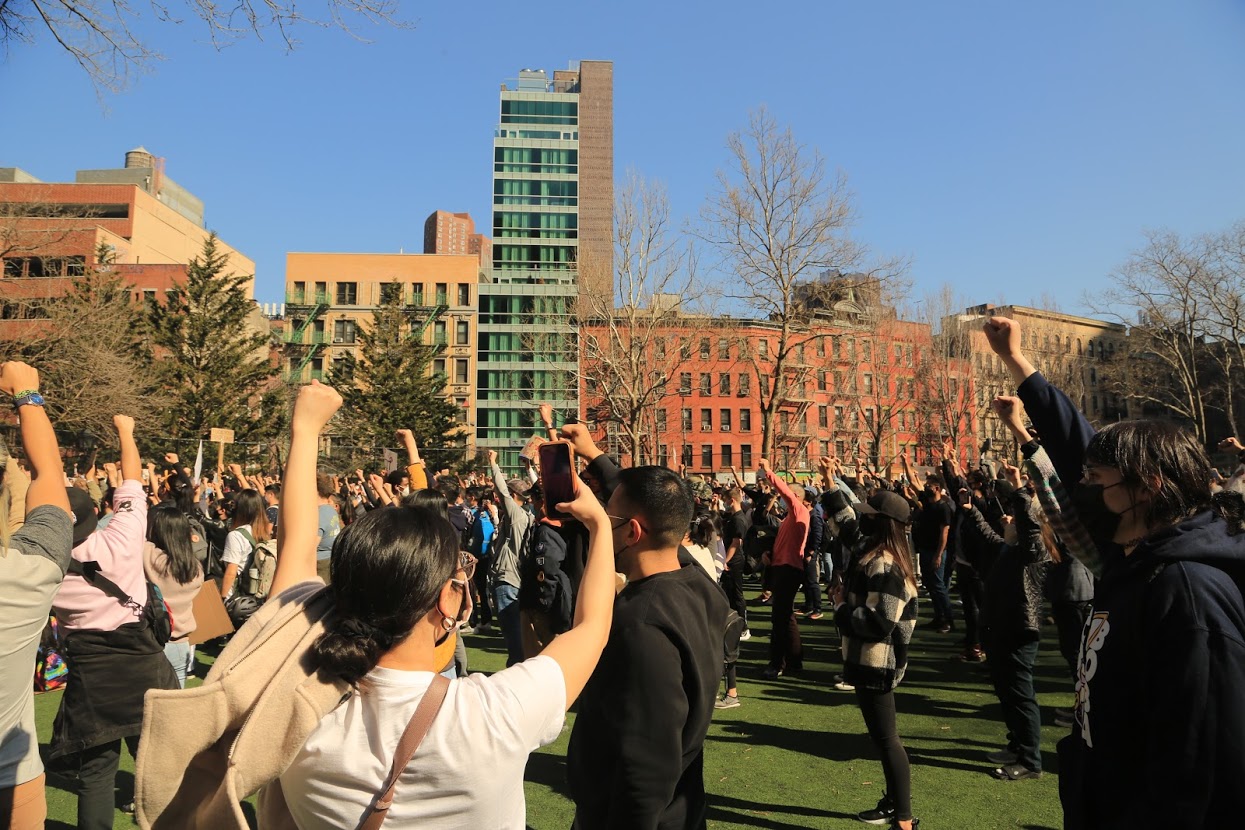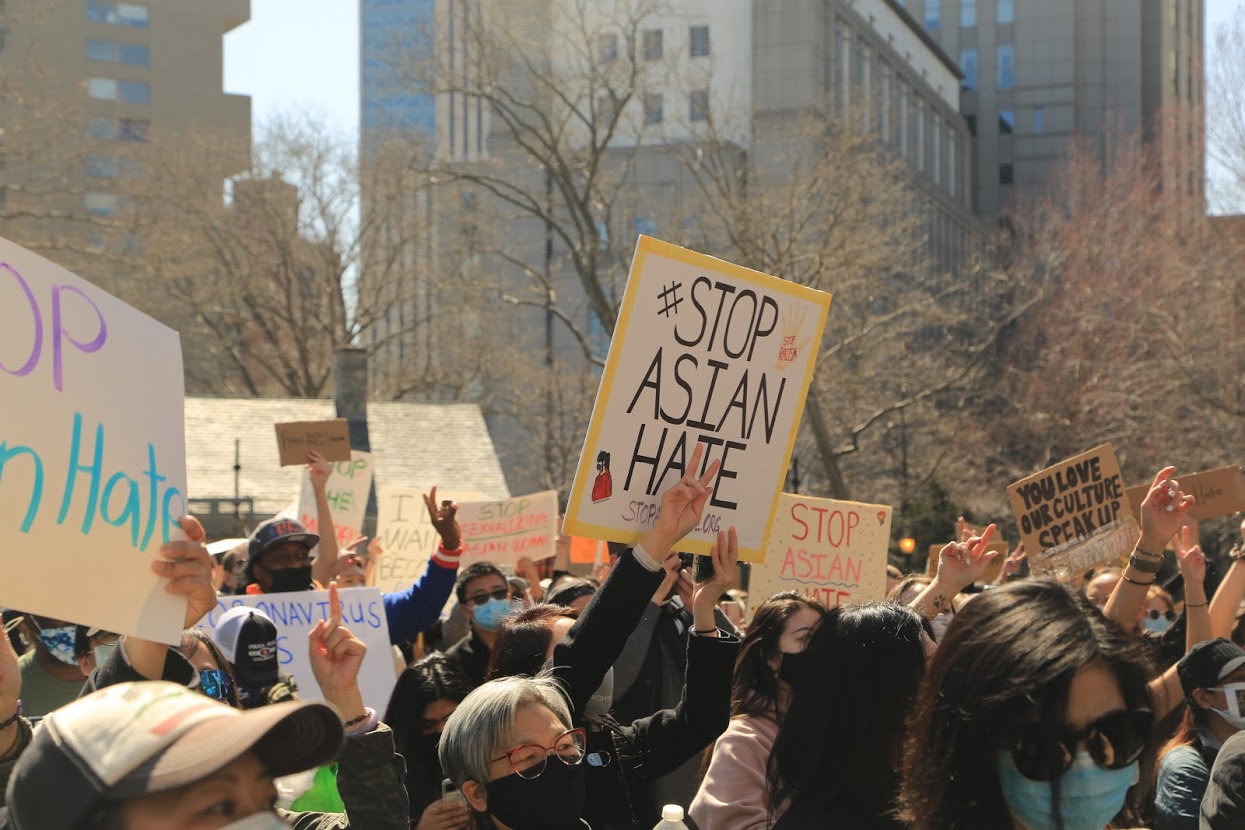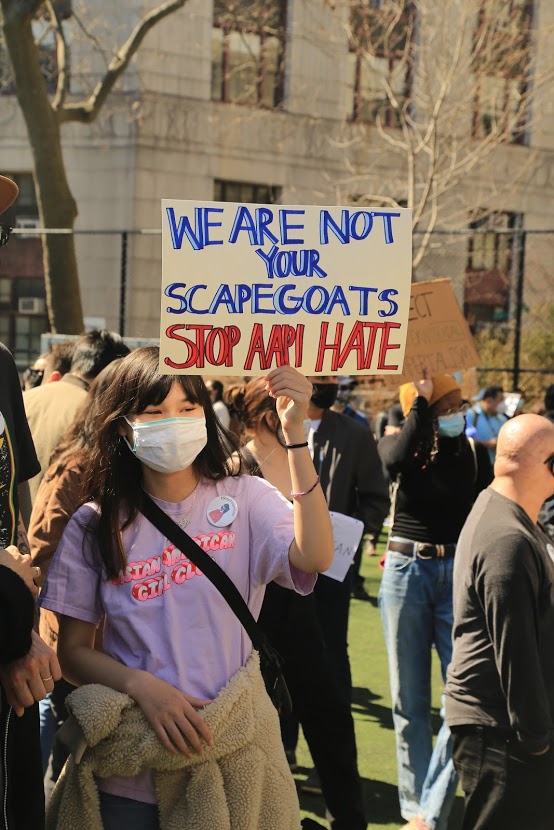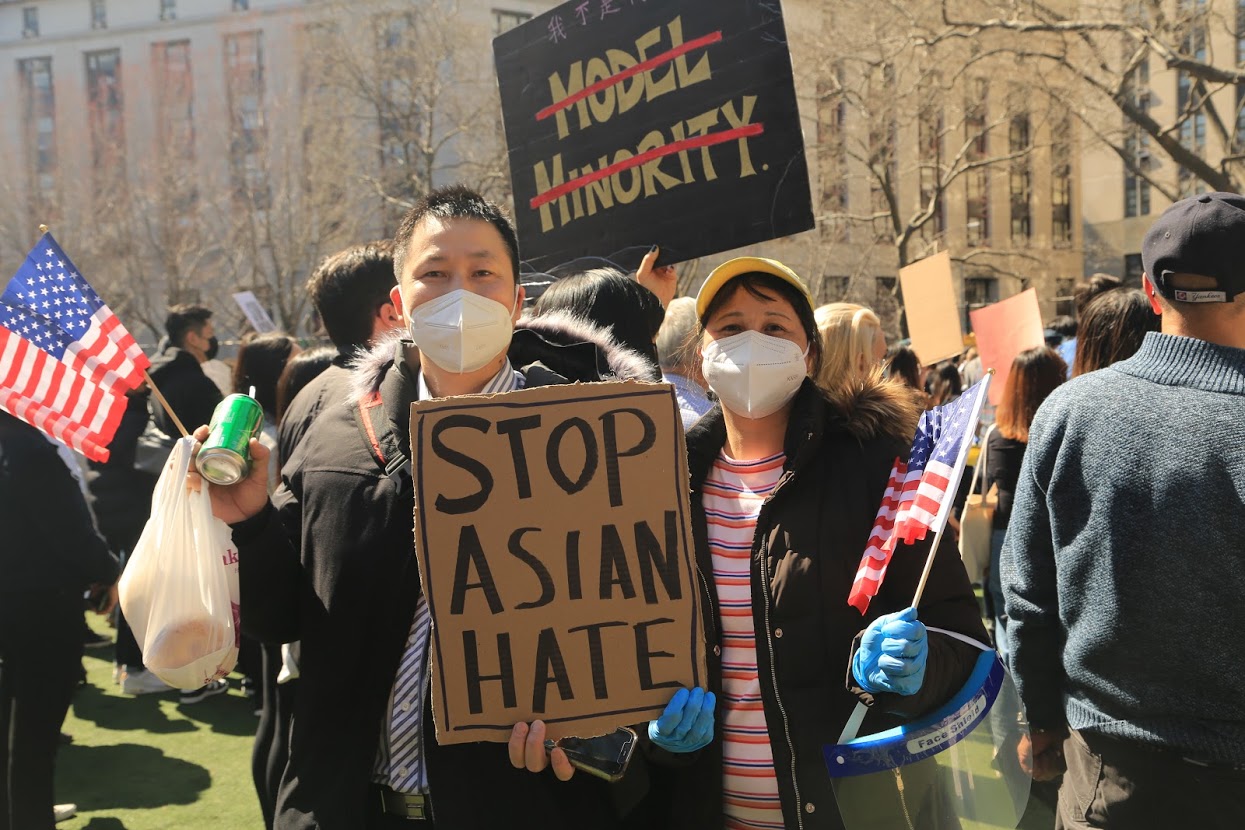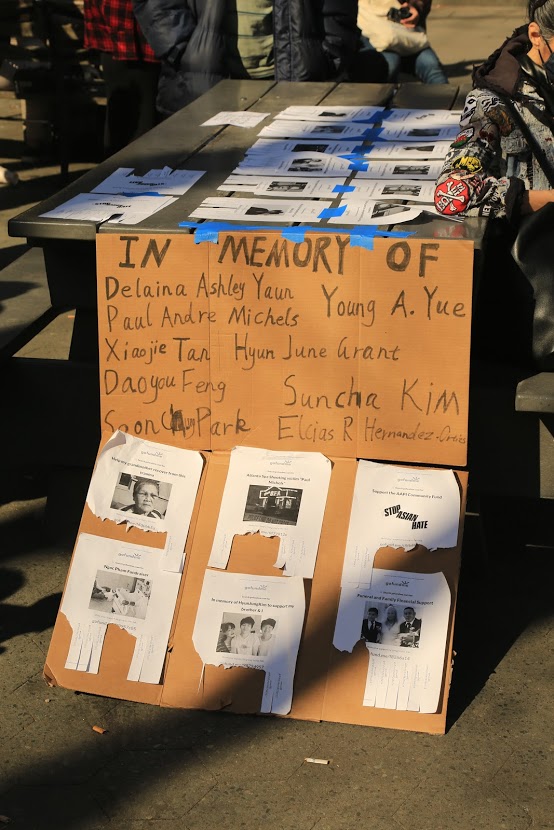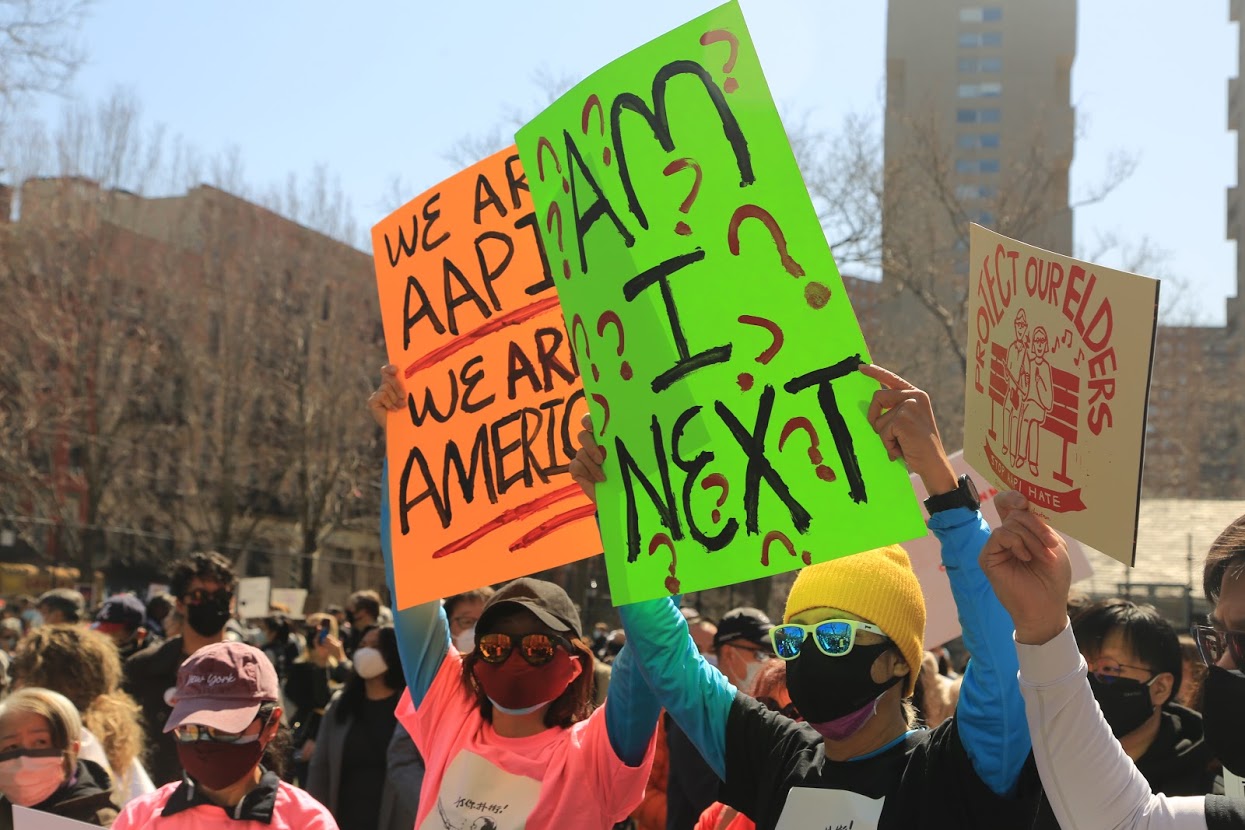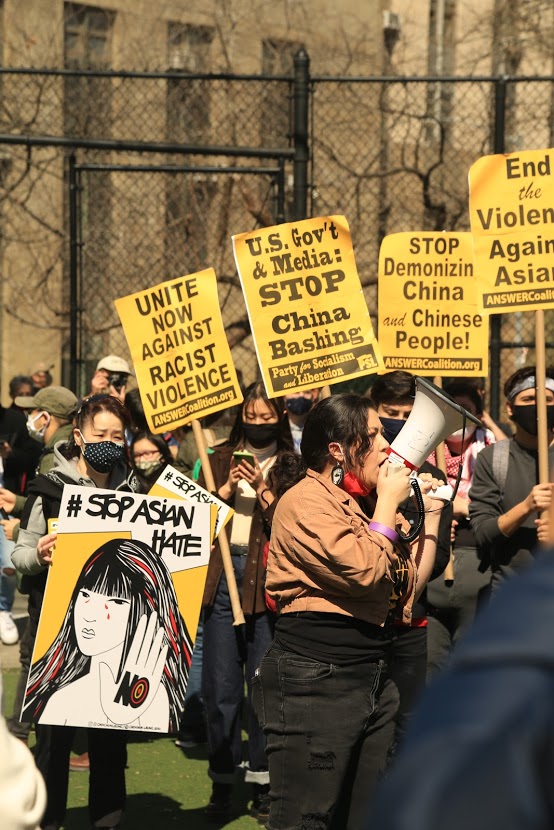Multiple rallies in New York City this weekend brought awareness to anti-Asian violence, which spiked in tandem with the COVID-19 pandemic last spring and has surged again in recent months. The rallies also sought to contextualize this uptick in violence within enduring histories of xenophobia and racism.
Following a vigil for victims of the Atlanta shootings held at Union Square on Friday, March 19, the Black & Asian Solidarity 5K Run and Walk met at Union Square on Sunday, March 21. The rally, organized by Running to Protest, proceeded to the Lower East Side, where many protesters joined the AAPI Rally Against Hate 2021 at Columbus Park.
Running to Protest, co-founded by filmmaker and runner Coffey, uses 5Ks to unite communities and raise awareness of social injustice. In the wake of the Atlanta shootings, Coffey organized the run to mend cultural gaps, discuss anti-Asian racism and acknowledge the power of representation.
“In the midst of rising xenophobia and anti-Asian racism, old wounds have resurfaced between the two communities,” Coffey wrote in an Instagram post. “In an effort to combat reactionary nationalism and rebuild cross-cultural allegiance we must push to identify our common struggles, and have an open dialogue around the history of our tensions and how to move forward together.”
Coffey said he has been a runner in New York for 15 years and has trained thousands of people for marathons. He decided to combine running and protesting because he believed the running community, as well as many others, needed to be educated on social injustices and how to stop them.
“I like being different,” Coffey told WSN. “I like being healthy … We are runners, and last year after what happened to Mr. George Floyd, Mr. Ahmaud Arbery, and Ms. Breonna Taylor, and all the other countless victims, I decided to allow my voice to protest.”
The first running protest Coffey organized occured on June 14, 2020. It started at the East River Park Amphitheater in the Lower East Side and was attended by more than 1,500 people. Coffey wants to educate people on social injustices because he believes schools do not sufficiently educate students on the Black and Asian American communities and the issues facing them. He argued that cross-cultural allegiance is a path forward.
Yilin Li, who works in marketing for a finance company in the city, also attended the event. Li said that the Black & Asian Solidarity 5K was the first protest she ever attended. After recent events, she said, she had enough. She decided to attend for women, for Asians and for all New Yorkers.
“It’s really emotional for us because I’ve been followed from the subway station last week, and my friend was attacked by some random guy on the street,” Li said. “I moved to the states in 2013, and I think I’m part of the city — and all of a sudden people are calling it the ‘Chinese virus,’ and you know, it’s just a virus. I just feel really sad.”
Harumi H. was holding a sign reading “Love Us Like You Love to Appropriate our Culture, Media, Fashion.”
“It’s just so common for people to say, ‘Oh, I love Asian culture, I love anime, I love Japanese or Chinese food,” Harumi, a medical student who asked to keep her surname and school private, said.
“Supporting us or protecting us — that doesn’t seem to be the same kind of energy, so that’s why I made this,” she continued, referring to her sign. “The hate crime that happened in Atlanta was something that affected me as an Asian American woman. As two groups who have been marginalized in different ways, I think it can only help both of our causes to work together.”
Harumi said many Asian Americans realized how dangerous former President Donald Trump’s rhetoric is. She believes that Black and Asian Americans should work together on the conversations concerning racial justice.
Many who participated in the Black & Asian Solidarity 5K made their way to Columbus Park in Manhattan’s Chinatown for an afternoon rally, where hundreds gathered to condemn anti-Asian violence and show solidarity with New York City’s Asian American and Pacific Islander communities.
Cousins Gaosong Heu and Nicholas Vang were among those who attended the 5K and the Rally Against Hate. They had arrived early and held signs reading “Stop Asian Hate” and “Protect, Respect, Support our Elders.” Originally from a Hmong refugee community in Minnesota, the two now count themselves among New York City’s 1.18 million Asian residents.
“Why wouldn’t you join this protest?” Heu said. “It can be very scary to speak up on these things but, truthfully, until we speak up on it, people are not going to know … [that] we do experience this pain. Being an Asian woman myself, I think it’s so important to say, ‘We are worthy of life, and my body and my voice are not here for your fetish. It’s not here for your entertainment, or to be consumed by capitalism.’”
The AAPI Rally Against Hate was organized by activists Jack Liang and Ben Wei. Coffey and other organizers from the 5K delivered speeches, as did US Sen. Chuck Schumer, New York City mayoral candidate Andrew Yang, NY State Assemblywoman Yuh-Line Niou and New York State Sens. John Liu, Brian Kavanagh and Kevin Parker.
The rally began with a moment of silence called for by Schumer.
“I’d like us to take a moment of silence for the eight who were lost in Atlanta and the families who mourn them,” Schumer said. “And then another moment of silence for, unfortunately, the so many Asians, Asian Americans who have suffered violence and bigotry in so many ways that have accelerated in this last year.”
Chinese American rapper MC Jin then took the stage next to speak and perform.
“It’s been an emotionally exhausting past week, past few months, past year, and, honestly, decades upon decades upon decades of being silenced, unheard, unacknowledged,” Jin said. “And I feel like today is much needed … We are under attack, I swear.”
John Liu, the first Asian American elected to citywide office in New York City and the first of two Asian New York state senators, criticized the rise in anti-Asian rhetoric amid the COVID-19 pandemic and expressed horror at the Atlanta shootings and the local authorities’ reaction to them.
“The sheriff says, ‘He had a bad day, we’re not sure that it was a hate crime,” Liu recounted. “And to make it even worse, to say that this guy has some kind of sex addiction, further marginalizing and objectifying Asian sisters.”
Coffey spoke about solidarity between the Black and AAPI communities.
“What happened in Georgia on Tuesday should have never happened,” he said. “We feel for you guys because it happened to us … They did the same thing in [Charleston] when they killed nine African Americans in a church … It’s white supremacists against all of us.”
Former presidential candidate Yang and his wife Evelyn Yang also took the stage.
“When you look at the Atlanta mass murderer, who targeted Asian women, he regarded them as nothing more than sexual objects, a stain on society that he was trying to eradicate,” Evelyn Yang said. “As an Asian woman, racism and misogyny is a two-headed beast.”
Andrew Yang spoke about his mayoral vision for New York City, saying that he saw policing as a solution to anti-Asian hate crimes.
“One of the first things I’m going to do is fully fund the Asian Hate Crime Task Force in the police,” he said. “This is not an issue that you can have volunteers addressing. If crime against a community goes up 900%, you don’t say, ‘Oh, we’ll let volunteers take care of that.’ You dedicate resources until that problem feels like it is going down, not up.”
As he started speaking about visiting Dr. Martin Luther King Jr’s birthplace, he was interrupted by a chant of “defund the police.”
“I know there are people that are very passionate about this, but the fact is if someone gets stabbed, you need the police to follow up,” Mr. Yang replied.
Some protesters, activists and politicians argued that police should not be touted as a solution to anti-Asian violence. Niou, the first Asian American to represent Lower Manhattan’s 65th Assembly District in the State Assembly, said that more policing will do nothing.
“We’re not asking for more police,” Niou said. “Until we have resources, I don’t want to see more police.”
Protesters who spoke with WSN agreed. Vincent, who asked to keep their surname private but identified themself as being with the Act Now to Stop War and End Racism Coalition, described the New York Police Department as committing hate crimes against Black and brown people daily. Heu agreed that policing is not the answer to racism and violence.
“Over-policing communities, statistically, I don’t think really works,” she said. “We’ve seen that in other communities — Black and brown communities, indigenous communities, communities with low socioeconomic statuses. What we need is better education … We need real, sustainable solutions to this.”
Nina Huang contributed reporting.
Email Roshni Raj and Suhail Gharaibeh at [email protected].























































































































































